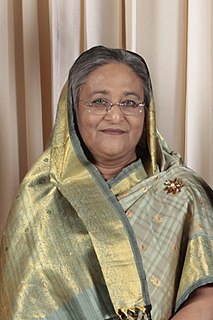
The history of people living in the area now known as Lesotho goes back as many as 40,000 years. The present Lesotho emerged as a single polity under paramount chief Moshoeshoe I in 1822. Under Moshoeshoe I, Basutoland joined other tribes in their struggle against the Lifaqane associated with the reign of Shaka Zulu from 1818 to 1828.
The Southern African Development Community intervention in Lesotho, codenamed Operation Boleas, was a military invasion launched by the Southern African Development Community (SADC), and led by South Africa through its South African National Defence Force into Lesotho to quell a coup d'état.
The Communist Party of Lesotho is a communist party in Lesotho, founded on May 5, 1962. The founding secretary of the party was John Motloheloa. Other early leaders of the party included Mokhafisi Kena and Sefali Malefane. Edward Mofutsanyana was a member of the Communist Party of South Africa Central Committee but had no part in the Lesotho party. Joe Matthews of the South African Communist Party financed the launch of the Lesotho party but later supported the ANC-allied Marematlou Freedom Party. The South African Communist Party, the Hungarian Socialist Workers Party and Walter Ulbricht of the Socialist Unity Party of Germany sent greetings on the occasion of the founding of the party. The party began publishing Mosebetsi.
Clement Ntsu Sejabanana Mokhehle was a Lesotho politician. He served as the 3rd Prime Minister of the country from 2 April 1993 to 17 August 1994 and from 14 September 1994 to 29 May 1998.

The Seventh National Parliamentary Elections 1996 were held in Bangladesh on 12 June 1996. The result was a victory for the Bangladesh Awami League, which won 146 of the 300 seats, beginning Sheikh Hasina's first-term as Prime Minister. Voter turnout was 75.6%, the highest to date. This election was the second to be held in 1996, following controversial elections held in February a few months earlier.
The 1999 Ivorian coup d'état took place on December 24, 1999. It was the first coup d'état since the independence of Ivory Coast and led to the President Henri Konan Bédié being deposed.

The 1980 Surinamese coup d'état, usually referred to as the Sergeants' Coup, was a military coup in Suriname which occurred on 25 February 1980, when a group of 16 sergeants of the Surinamese Armed Forces (SKM) led by Dési Bouterse overthrew the government of Prime Minister Henck Arron with a violent coup d'état. This marked the beginning of the military dictatorship that dominated the country from 1980 until 1991. The dictatorship featured the presence of an evening curfew, the lack of freedom of press, a ban on political parties, a restriction on the freedom of assembly, a high level of government corruption and the summary executions of political opponents.

General elections were held in Lesotho on 26 May 2012. The incumbent Prime Minister Pakalitha Mosisili's newly formed Democratic Congress won a majority of single-member seats. He also won his seat by the second-largest margin of victory. However, they only had a plurality in the overall tally and coalition talks are taking place.

On 30 August 2014, Lesotho's Prime Minister Tom Thabane alleged that a coup d'état had been launched against him. This followed a previous allegation which caused him to suspend parliament over possible extra-constitutional manoeuvres. It also followed pressure from South Africa to maintain the democratic process. The next day, Deputy Prime Minister Mothetjoa Metsing assumed responsibility for running the government. An early election was held in February 2015 as a result of South African-led Southern African Development Community (SADC) mediation, giving power to the opposition.

General elections were held in Lesotho on 28 February 2015 for all 120 seats of the National Assembly, the lower house of the Parliament of Lesotho, more than two years ahead of schedule due to the 2014 political crisis. Following mediation facilitated by the Southern African Development Community (SADC), King Letsie III on the advice of the incumbent Prime Minister Tom Thabane, dissolved the Eighth Parliament and called a snap election.

Mothetjoa Metsing is a former Deputy Prime Minister of Lesotho. He is a member of the Lesotho Congress for Democracy (LCD) and serves in the government of Prime Minister Tom Thabane. In 2014, he was involved in controversy over an alleged coup attempt against the prime minister that was eventually resolved over calls for an early election.

A coup d'état took place in Lesotho on 30 April 1991, led by Colonel Elias Phisoana Ramaema. It led to the resignation of Prime Minister General Justin Lekhanya, who held the office since the 1986 coup d'état.

A coup d'état took place in Lesotho on 15 January 1986, led by General Justin Lekhanya. It led to the deposition of Prime Minister Leabua Jonathan, who held the office since 1965 and assumed dictatorial powers in the 1970 coup d'état, after the general election was annulled.
William Neal de Alwis was a Ceylonese politician and a senior member of the Lanka Sama Samaja Party.

A self-coup took place in Lesotho on 30 January 1970, led by Prime Minister Leabua Jonathan. It led to the assumption of dictatorial powers by Prime Minister Jonathan, who held the office since 1965. The coup was triggered by the victory of the opposition Basutoland Congress Party over the ruling Basotholand National Party in the general election.










